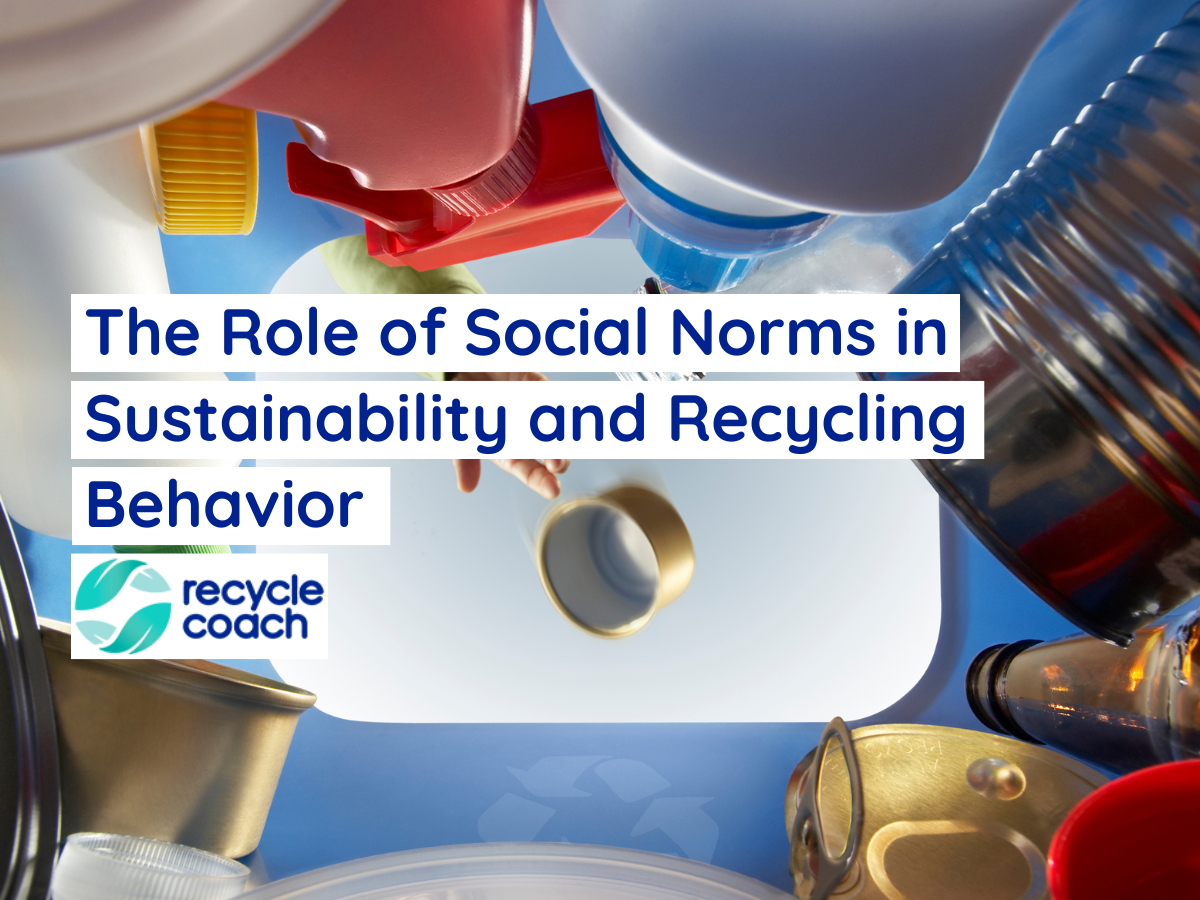The Role of Social Norms in Sustainability and Recycling Behavior

Recycling plays a crucial role in protecting the environment and reducing global waste. According to the World Economic Forum (WEF), we recycled two million tonnes of plastic in 2022 and 50 million tonnes of paper in 2021.
However, WEF data shows that we still have a long way to go. Currently, the US only recycles 5-6% of its total plastics, meaning that 75 – 199 million tons of plastic ends up in our oceans. This poses a serious threat to marine life and is slowly undermining our wider food systems.
Changing public perception and social norms is crucial to improving recycling rates. Improving public understanding ensures that plastics, paper, and other materials are recycled correctly and easily parsed from non-recyclable materials. Public awareness can help highlight issues that recycling firms face and put pressure on decision-makers to improve legislation and make recycling easier, too.
The Power of Public Perception
Most people undervalue the power of social roles and social norms in their day-to-day lives. It’s easy to overlook the unwritten rules and beliefs that govern how we spend our time and how we interpret the world around us. However, for recycling to become more popular, we must teach the general public to see the world with sustainability in mind.
Fortunately, public support for recycling efforts is improving. According to the US Environmental Protection Agency (EPA), 32% of Americans now recycle regularly. This is a major improvement on the meager 7% of Americans who recycled regularly in 1960, but is still some way short of the 50% target that the EPA has set for 2030.
Shifting public perception to improve understanding of recycling is tricky. However, recycling firms can rely on the fact that many people already understand related ideas like energy efficiency in the home and have made lifestyle changes to utilize more energy-efficient lightbulbs like LEDs, CFLs, and Halogen Incandescent bulbs. This proves that, with the right social support, sustainable initiatives like recycling can catch on with the public and significantly improve recycling behavior.
Connecting with Consumers
Proponents of recycling know that many consumers are already interested in living more sustainable lives. This means that to raise the recycling rate, decision-makers must lean on the public’s pre-existing understanding of recycling. This helps recycling companies connect with their consumers and amplifies the reach of their pro-recycling public messaging.
Educating the public and connecting with consumers needn’t be complicated, either. Instead, firms should emphasize the fact that consumers care about sustainability and should find innovative ways to make recycling easier. This can help companies attract new consumers, reduce waste, and potentially save money. Additional benefits of adopting a more sustainable approach include:
- Improved brand loyalty;
- Build resilience thanks to stronger supply chains and improved energy access;
- Future-proofing the business by getting ahead of legislation that mandates recycling;
Modern consumers are committed to sustainability and will pay more for products that come with sustainable, recyclable packaging. Meaningful investments in recycling efforts can help combat greenwashing claims and help firms adopt sustainability as a competitive advantage.
Progressive firms that care about how consumers recycle their produce can even include additional information on internal labeling, such as inside wrapping on plastic bottles. This is particularly important when attempting to recycle products with multiple parts that must be recycled differently, such as water bottles that have plastic caps. By actively educating consumers, brands improve their image and help eco-friendly customers effectively reduce their waste and improve their recycling efforts. Over time, this helpful approach could even become the social norm, meaning that early adopters will benefit from a powerful first-mover advantage.
Peer Influence
Folks are far more likely to engage in sustainable behavior if they feel peer pressured into recycling. Obviously, this doesn’t mean the public should be coerced into recycling. Instead, companies can support recycling and take advantage of peer pressure by encouraging families to be more eco-friendly at home.
Leveraging peer influence can be a straightforward process, too. Simple mantras, like “Reduce, Reuse, Recycle” can be partnered with additional tips to “Repurpose and Refurbish” to help folks experiment with recycling habits. This helps cut down on waste by creating fun ways to make use of materials like empty tissue boxes or old soda cans.
The power of simple changes is echoed by peer-reviewed research published in Frontiers of Environmental Science. The paper, titled “Evaluating the Role of Social Norms in Fostering Pro-Environmental Behaviors” found that most behavioral changes are “typically engineered through a mixed-policy response.” This means that social change is best engineered when decision-makers can impact the public via a range of policies that educate the population and create financial incentives for recycling.
As such, simple messaging, such as “save money by recycling,” or “protect your local waterways by recycling”, is more powerful than complex lectures on the wider benefits of recycling. These simple messages land because they connect with a range of pre-existing public values and are easy to understand. They help spread pro-recycling peer influence, too, as no one wants to appear to be uneducated or uncaring.
Conclusion
Social norms influence our daily habits and behaviors. This is good news for organizations that want to improve recycling rates and help keep waste out of landfills. By leveraging peer pressure, organizations can create a social climate that encourages sustainable habits and makes recycling the social norm. This is crucial, as public understanding of climate change is improving and efforts must be made to highlight the importance of recycling.
Author Bio
Sam Bowman writes about people, sustainability, recycling, and how they merge. He enjoys getting to utilize the internet for the community without actually having to leave his house. He volunteers his time as a local recycling and waste reduction activist, working to help people better navigate proper recycling. In his spare time, he likes running, reading, and combining the two in a run to his local bookstore.